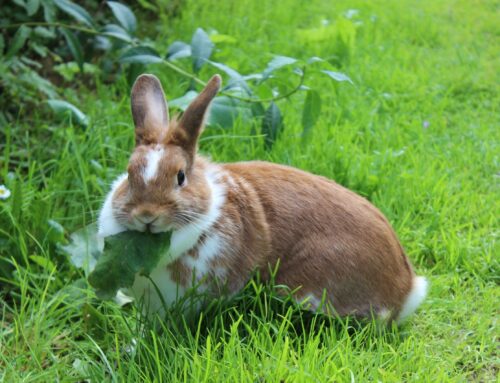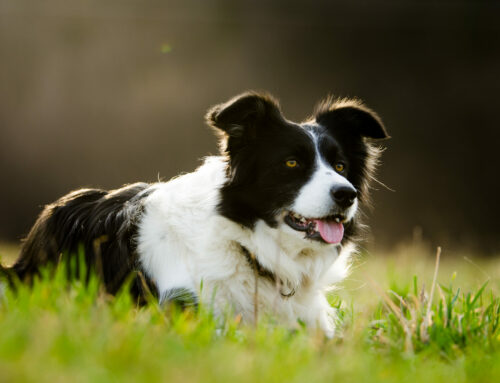We vaccinate our pets to protect them against some of the most common, sinister diseases that can affect their species. This protection is in the form of immunity against a range of nasty viruses and bacteria, that will reduce the severity of disease – and in most cases, prevent them from catching it in the first place. There are ‘core’ vaccines which are generally regarded as necessary for all pets within the United Kingdom. There are also other vaccines which are optional extras to provide extra immunity to common diseases. We can recommend which, if any, extra vaccines are recommended for your pet, depending on the risks and their lifestyle.
How do vaccines work?
Vaccines work by exposing your pet’s body to weakened pathogens, or pathogen like substances, which stimulate an immune response. By stimulating an immune response using a controlled vaccine, we can create an immune response without causing the clinical signs that the uncontrolled or unweakened disease would cause. Once the body has created an immune response to a disease, the next time it is exposed to that disease it will respond much more quickly, so the disease will not be able to thrive and reproduce as rapidly in the body.
When should you start vaccinating your pets?
You can vaccinate your pet from 6 weeks old in most cases, but this will vary depending on the particular vaccine’s current recommendations.
Pets must be in good physical health in order to receive their vaccination. If your pet is systemically ill or receiving immunosuppressive medication, vaccinations may need to be delayed. Your vet will make a clinical decision as to the best time to vaccinate on a case by case basis.
If your pet has not received vaccines as a youngster, we can still start vaccinating your pet as an adult. The frequency of the initial vaccines may be less but the diseases we vaccinate against will be similar.
What will happen when I book in for a vaccine?
You will arrive with your pet at the veterinary clinic ready for your appointment. The veterinary professional will perform a thorough clinical exam and take a history regarding your pet’s behaviour and lifestyle. Your pet will receive an injection of the vaccines subcutaneously (under the skin). Most vaccines will be cold because they are stored in the fridge.
What happens if my pet reacts to the vaccine?
Whilst adverse reactions to vaccinations are rare, they are not impossible. If you become worried regarding your pet’s health following a vaccine, call us immediately so we can offer advice, or report the adverse reaction and take care of your pet. Itching at the injection site and short-term mild lethargy following vaccination are very common and almost always nothing to worry about.
What happens if my pet misses one vaccine?
Your vaccines should be boosted at a regular, controlled interval. This interval depends on the type of vaccine given and the recommendations from the manufacturer. Boosters are given to remind your body of the immune response that is expected when they are exposed to that disease.
If you miss a vaccination, do not worry, there is often a window in which the vaccine will work, so if you are just a little bit late you may still be able to get your booster.
If your pet has missed the window for the vaccine booster, you can restart your pet’s vaccines. The species and age of your pet, plus the brand of vaccine your practice uses, will determine when you need the vaccination booster.
What are our core vaccinations for companion animals in the UK?
Dogs – Distemper, Hepatitis, Parvovirus and Leptospirosis.
Ferrets – Distemper.
Cats – Rhinitis (herpesvirus), Calicivirus, Panleukopenia
Rabbits – Myxomatosis, Rabbit Haemorrhagic Disease 1 and 2
What are our non-core vaccinations for companion animals in the UK?
Dogs – Kennel Cough, Rabies, Lymes Disease, Canine Herpes Virus and Leishmania
Cat – Feline Leukaemia Virus, Chlamydia, Rabies, Bordetella Bronchiseptica (Kennel Cough)
Ferrets – Rabies
What vaccinations does my pet need in order to travel abroad?
There are different vaccination protocols required to take your pet to different countries. You should research which vaccinations your pet will require for that country on the government website. Following this research, you will need to find an Official Vet (OV) who is able to provide these vaccinations and sign off the legal documents. You should give your OV as much notice as possible before travelling to ensure everything can be completed on time.
If I have lost my vaccination card, what happens?
Your vaccination card is a record which allows you to keep all of your pet’s vaccination records in one place. Your vaccination record will show which vaccines your pet had on which date, the weight of your pet, whether or not a health check was performed and which veterinary professional performed the vaccination.
You can take this record home and it is often very useful to keep it up to date if your pet goes to day care or into a kennels, because proof of vaccination is often needed. Your vet will create detailed notes at the practice following a thorough clinical exam and vaccination, so if you lose your vaccination card, you should not worry as all of the information is stored within our practice database.
Overall, we strongly recommend vaccinating your pets and maintaining a regular, controlled vaccination interval to maintain a high level of immunity.
Contact us at Acorn Vets to discuss the best way to get your pet’s vaccinations in Mallow.



